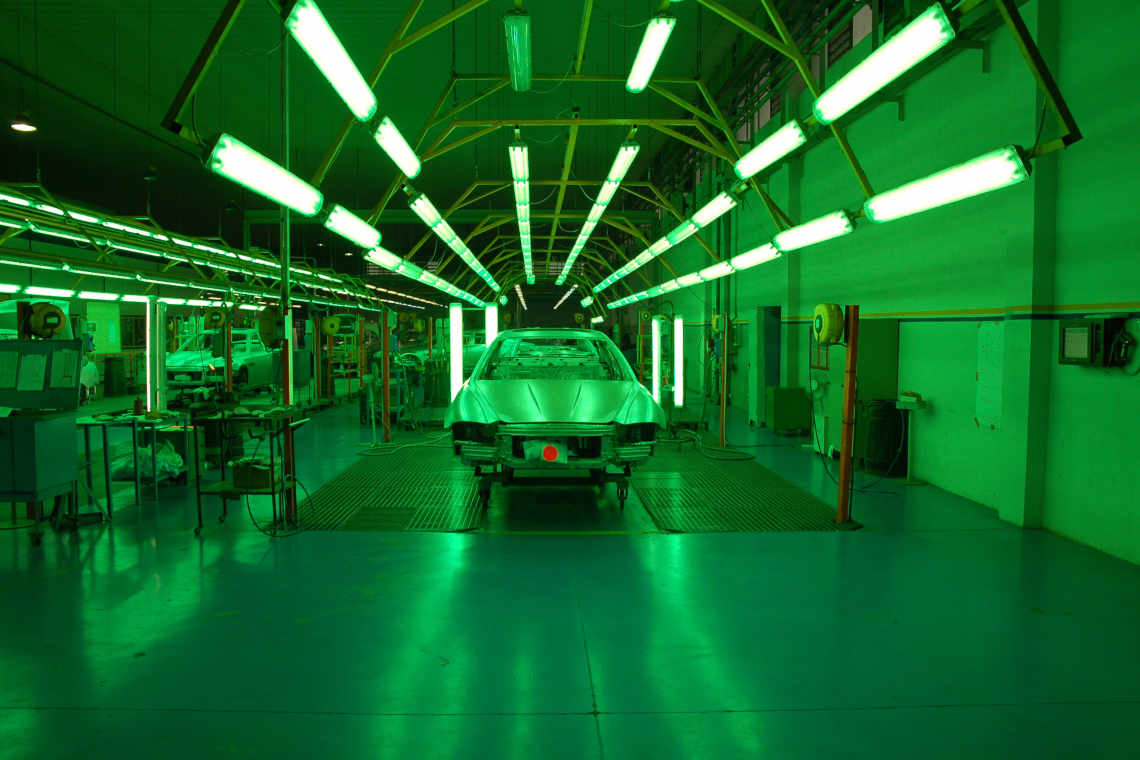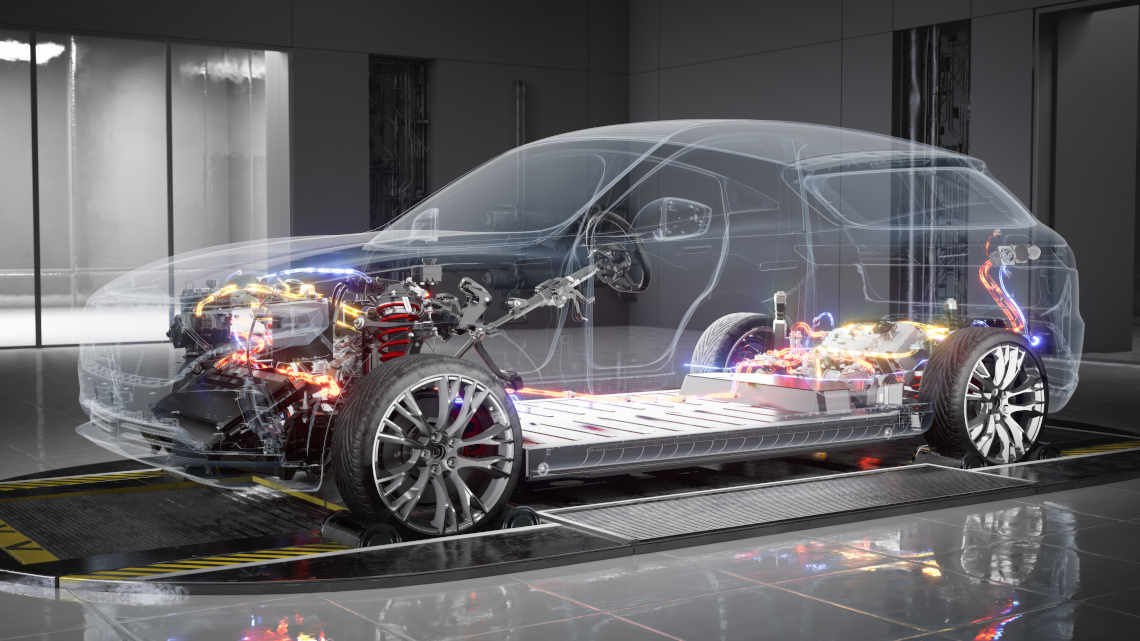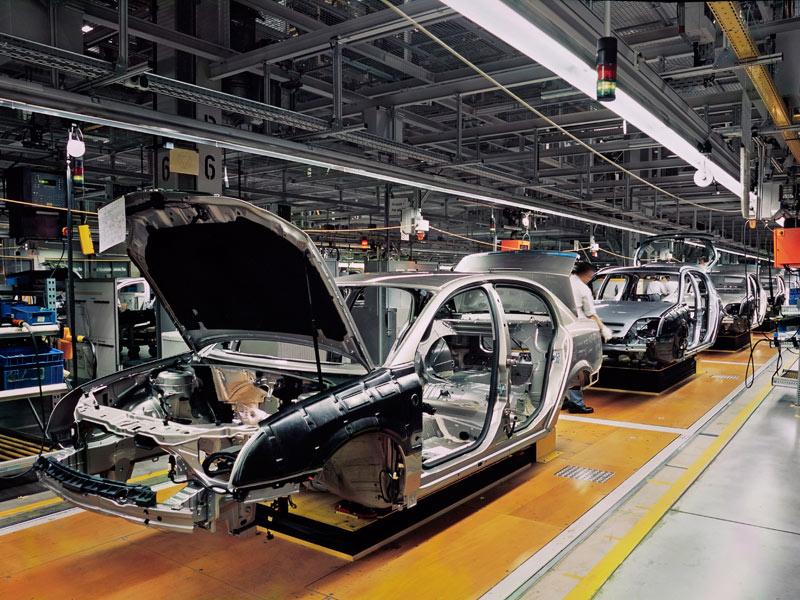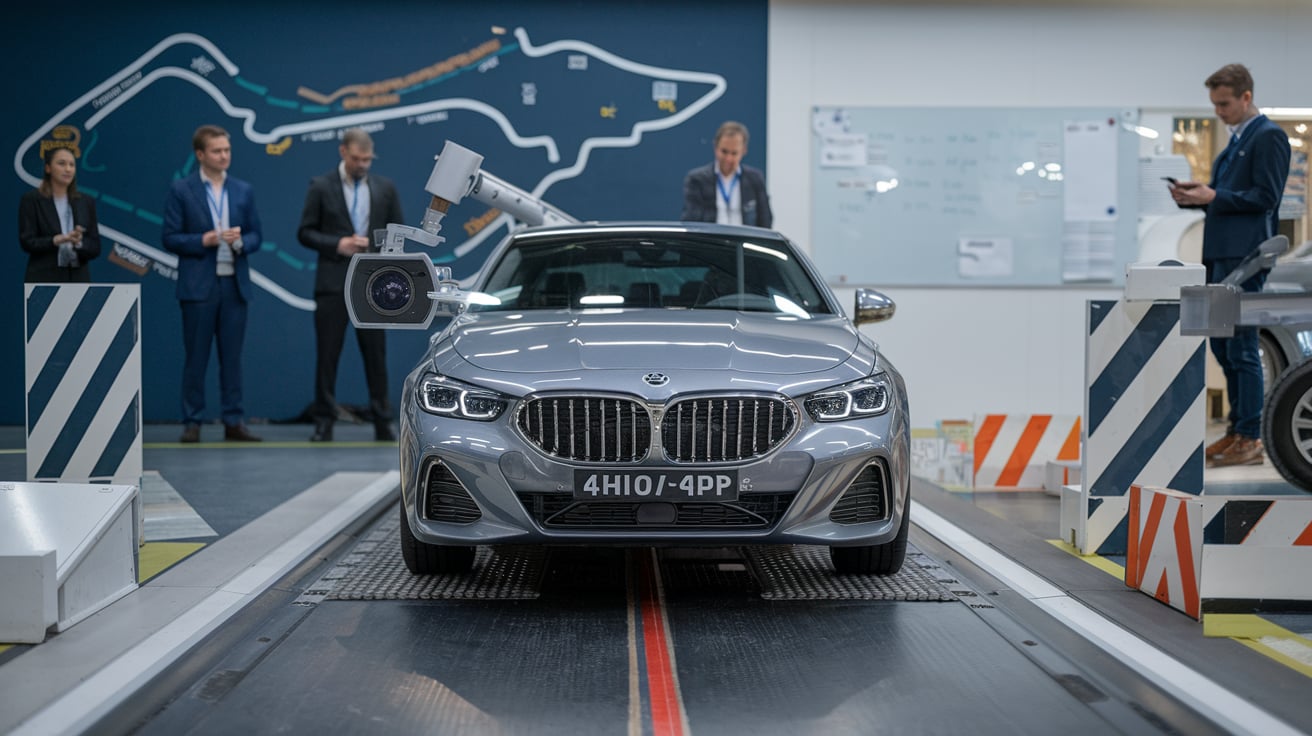Automotive Market Research in Europe

Automotive market research in Europe is a vital tool for industry stakeholders to make informed decisions and formulate effective strategies. It can help them understand shifting consumer preferences and evaluate the impact of technological advancements and regulatory changes.
What Is Automotive Market Research in Europe?
Automotive market research in Europe encompasses a comprehensive analysis of the automotive industry’s various facets, including market size, trends, competitive landscape, consumer behavior, and regulatory factors across European countries. It involves gathering, analyzing, and interpreting data to provide insights into market dynamics, industry challenges, and growth opportunities.What Is the Real Significance of Automotive Market Research in Europe?

- Finding new business opportunities: The research can assist firms in identifying new business opportunities such as untapped markets or potential partnerships. As a result, companies can stay abreast of the latest industry trends and developments, enabling them to respond to changing market conditions.
- Research on consumer preferences: Companies can evaluate consumer preferences and purchasing behaviors by analyzing the European automotive market. It may be used to develop new products and services that meet the needs of European consumers.
- Identify potential growth areas: Automotive market research in Europe allows businesses to assess the competitive landscape of the European market as a whole, including competitors’ strengths and weaknesses.
- Understanding of the regulatory environment: Companies can address government policies related to the automotive industry, providing valuable resources for identifying potential opportunities or challenges.
What Are the Benefits of Automotive Market Research in Europe?
Automotive market research in Europe offers many benefits for industry players looking to gain a competitive edge and drive success in the market. Here are some key advantages:- Insight into Consumer Preferences: By conducting market research, businesses gain valuable insights into evolving consumer preferences, purchasing behavior, and demographic trends across different European markets.
- Identification of Growth Opportunities: Through automotive market research in Europe, businesses can identify emerging trends, niche markets, and untapped opportunities for growth within the European automotive industry.
- Mitigation of Risks: By understanding market dynamics, competitive pressures, and regulatory requirements, companies can proactively identify and mitigate potential risks and challenges.
- Strategic Decision-Making: With comprehensive market intelligence, businesses can make more informed and strategic decisions across all operations, from product development and marketing to distribution and pricing strategies.
- Enhanced Competitive Advantage: By staying abreast of market trends, consumer preferences, and competitive developments, businesses can gain a competitive advantage over rivals in the European automotive industry.
When to Conduct Automotive Market Research in Europe
Market research is essential before investing in developing new automotive products or services for the European market. This stage allows businesses to assess market demand, identify unmet needs, and understand consumer preferences, ensuring product development efforts align with market realities and customer expectations. Automotive market research in Europe is vital when considering entering a new European market or expanding existing operations. It enables businesses to evaluate market size, competitive landscape, regulatory environment, and cultural nuances, informing strategic decisions regarding market entry strategies, target segments, and distribution channels.Trends in the automotive market research in Europe

Our Current Market Review and Recommendations
We believe the European automotive market continues to evolve rapidly, driven by technological advancements, shifting consumer preferences, and regulatory changes. Electric vehicles (EVs) and autonomous driving technologies are gaining traction, prompting automakers to invest heavily in research and development to meet sustainability goals and address future mobility needs. Additionally, there is a growing emphasis on connectivity, digitization, and data-driven services, creating new opportunities for innovation and differentiation. The European automotive market is highly competitive, with established players vying for market share while new entrants and disruptors challenge traditional business models. Leading automakers are investing in electrification, mobility services, and digital transformation to stay ahead of the curve, while startups and tech giants are entering the market with innovative solutions and disruptive business models. To thrive in this competitive landscape, automotive businesses must differentiate themselves through product innovation, brand positioning, and customer-centric strategies. Recommendations: Based on our market review, we recommend that automotive businesses operating in Europe focus on the following strategic initiatives:- Invest in electrification and sustainable mobility solutions to meet regulatory requirements and consumer demand for environmentally friendly vehicles.
- Embrace digital transformation and data-driven technologies to enhance the customer experience, improve operational efficiency, and unlock new revenue streams.
- Foster strategic partnerships and collaborations to accelerate innovation, access new markets, and leverage complementary capabilities in autonomous driving, connectivity, and mobility services.
- Prioritize agility and flexibility in supply chain management to mitigate risks, address disruptions, and adapt effectively to changing market conditions.
Expected Results from SIS Automotive Market Research in Europe
At SIS International, our comprehensive suite of automotive market research and consulting services is tailored to deliver tangible results and drive business success for our clients in the European automotive market. Here’s what you can expect when partnering with SIS:In-depth Market Insights:
Our team of experienced researchers and analysts conducts thorough market assessments, providing you with actionable insights into consumer preferences, market trends, competitive dynamics, and regulatory landscapes.
Customized Solutions:
We understand that every client has unique needs and objectives. We offer customized solutions tailored to your specific requirements and business goals.
Actionable Recommendations:
Our research doesn’t stop at insights. We go the extra mile to provide actionable recommendations that empower you to make data-driven decisions and seize opportunities in the European automotive market.
Long-term Partnership:
We prioritize building long-term partnerships based on trust, transparency, and mutual success. SIS dedicated team is committed to delivering excellence at every stage of the engagement, providing ongoing support and expertise to help you navigate market complexities, overcome challenges, and achieve your business objectives.
Opportunities
- EV will change the automotive industry landscape and impact European automotive market research.
- Europe should utilize its position as a technology leader in autonomous driving and connectivity.
- Incorporating artificial intelligence (AI) and the Internet of Things (IoT) in vehicles is an increasingly apparent possibility that would generate higher profits for companies. It would keep European carmakers relevant and satisfy consumers’ needs and expectations.
Challenges
- This industry is particularly large and complex for market researchers to analyze. Therefore, keeping data up to date is complicated.
- Supply chain changes and rising operating costs will continue to affect supplier consolidation. An increasing number of electronic components and software in vehicles worldwide increases production costs.
- The transition from fossil fuel vehicles to EVs may entail a large investment for car manufacturers, who must build new models to adapt to this new trend in the coming decades to remain competitive.
Main countries to analyze in the automotive market research in Europe

- UK: The UK has various manufacturers, such as Rolls-Royce, Jaguar, and Bentley. Thus, market research for the UK will rely on the developments reported by these companies to determine market trends. Due to the strict environmental regulations the UK is adopting, more EVs are expected to be introduced. At the same time, gasoline-powered vehicles may be less in demand.
- Germany: German engineering and technology expertise is well known, and research on the German market should consider the technological advances presented by the companies that dominate this market such as BMW, Mercedes-Benz, Audi, and Volkswagen. Like the UK, incorporating improved vehicle technology and switching to EVs may be one of the major considerations for research in the German automotive market.
- Italy: Italy is renowned for its luxury and high-end automobiles. The Italian automotive market has many manufacturers, including luxury sports car brands such as Ferrari, Lamborghini, and Maserati. Market research for the Italian automotive industry may focus on the luxury market and the expectations of its consumers to determine what features and technologies should be included in the luxury cars of the next few years.
Market leaders in the European automotive industry
Europe is home to numerous global players, which produce within Europe’s borders and compete on a global level, among them companies such as:
- Volkswagen
- Skoda
- Peugeot
- Opel
- Citroën
- Fiat
- Audi
- BMW
- Mercedes-Benz
- Renault
Prospects for automotive market research in Europe
The automotive market research in Europe is expected to grow rapidly with new emerging technologies such as AI and IoT, especially with the shift to EVs and hybrid vehicles. Furthermore, using sustainable materials and recycling will play a critical role in the future of the automotive industry, with EU regulations and international agreements forcing companies to reduce their environmental footprint. Additionally, research is likely to focus on understanding the impacts of government regulations and policies on the automotive industry, and on identifying new business models and revenue streams for companies operating in the market.Market Drivers

Technological Advancements:
-
- Rapid advancements in automotive technology, including EVs, autonomous driving systems, and connectivity solutions, drive innovation and reshape consumer preferences.
Environmental Regulations:
-
- Stringent environmental regulations and emissions standards imposed by European governments drive the adoption of cleaner and greener automotive technologies.
Changing Consumer Preferences:
-
- Evolving consumer preferences, influenced by urbanization, demographic shifts, and lifestyle changes, drive demand for personalized and technologically advanced vehicles.
Digitalization and Connectivity:
-
- The proliferation of digitalization and connectivity in vehicles drives a paradigm shift in the automotive ecosystem. From connected infotainment systems and telematics to vehicle-to-everything (V2X) communication, digital innovations enhance the driving experience, improve safety, and enable new revenue streams for automotive companies.
Market Restraints
Alongside the drivers propelling growth in the European automotive market, several significant restraints pose challenges and considerations for industry players. These restraints include:Economic Uncertainty:
-
- Economic fluctuations, geopolitical tensions, and trade disruptions can significantly impact consumer confidence and purchasing power, affecting automotive sales and investments.
Supply Chain Disruptions:
-
- The automotive industry relies heavily on complex global supply chains, making it susceptible to disruptions such as natural disasters, geopolitical conflicts, and trade disputes.
Competitive Pressures:
-
- Intense competition within the European automotive market creates pricing pressures and erodes profit margins.
Shifting Mobility Trends:
-
- The emergence of new mobility trends, such as shared mobility, autonomous vehicles, and mobility-as-a-service (MaaS) platforms, is reshaping traditional automotive business models and consumer behaviors.
Industry Attractiveness: SWOT Analysis of the Automotive Market in Europe
Conducting a SWOT analysis provides valuable insights into the strengths, weaknesses, opportunities, and threats facing the automotive industry in Europe:Strengths:
-
- Established Infrastructure: Europe boasts a robust automotive manufacturing infrastructure supported by a skilled workforce, advanced technology, and extensive supply chain networks.
- Innovation Hub: The region is a global leader in automotive innovation, with renowned research institutions, technology clusters, and collaborative partnerships driving advancements in electric vehicles, autonomous driving, and connected mobility solutions.
- Strong Regulatory Framework: Stringent safety and emissions regulations promote sustainable practices, fuel efficiency, and vehicle safety standards, positioning European automakers as pioneers in environmental sustainability and safety technology.
Weaknesses:
-
- High Production Costs: Labor costs, stringent regulatory compliance, and taxes contribute to higher production costs for European automakers than their counterparts in other regions, impacting competitiveness and profit margins.
- Market Saturation: The European automotive market is mature and highly saturated, with intense competition and limited opportunities for significant market share growth.
- Dependency on Traditional Technologies: Despite advancements in electric and autonomous vehicles, European automakers face challenges transitioning from traditional internal combustion engines to alternative propulsion systems due to legacy investments and infrastructure constraints.
Opportunities:
-
- Electric Vehicle Adoption: Growing consumer interest in electric vehicles, supported by government incentives, emission reduction targets, and charging infrastructure investments, presents opportunities for automakers to expand their electric vehicle offerings and capture market share in the burgeoning EV segment.
- Digital Transformation: Embracing digital technologies, such as artificial intelligence, augmented reality, and data analytics, can enhance product development, manufacturing processes, and customer experiences, driving operational efficiencies and competitive advantages.
- Mobility Solutions: Rising demand for shared mobility, ride-hailing services, and smart transportation solutions creates opportunities for automakers to diversify their business models, collaborate with mobility service providers, and tap into new revenue streams beyond traditional vehicle sales.
Threats:
-
- Disruptive Technologies: Disruptive technologies, such as autonomous vehicles, MaaS, and digital platforms, challenge traditional automotive business models and distribution channels, threatening established players’ market positions and revenue streams.
- Regulatory Compliance Costs: Compliance with evolving regulatory standards, including emissions targets, data privacy laws, and cybersecurity regulations, requires significant investments in research, development, and legal compliance, adding complexity and costs to automotive operations.
How SIS International’s Automotive Market Research Solutions Help Businesses
SIS International offers tailored market research solutions designed to address the unique challenges and opportunities faced by automotive companies operating in the European market:In-depth Consumer Insights:
SIS International leverages advanced research methodologies, including surveys, focus groups, and ethnographic studies, to provide deep insights into consumer preferences, behaviors, and purchase motivations.
Competitive Intelligence:
SIS conducts comprehensive competitive analysis, benchmarking studies, and market segmentation to identify key competitors, assess market positioning, and uncover emerging threats and opportunities.
Market Entry and Expansion Strategies:
We assist automotive companies in evaluating market entry opportunities, assessing market potential, and devising market expansion strategies tailored to the European market landscape.
Trend Analysis and Forecasting:
Through trend analysis, scenario planning, and forecasting techniques, SIS International helps automotive companies anticipate future market trends, industry disruptions, and regulatory changes.
ROI Optimization:
Our team emphasizes ROI optimization by measuring the effectiveness of marketing campaigns, product launches, and market initiatives through rigorous performance tracking, KPI monitoring, and post-campaign analysis.

